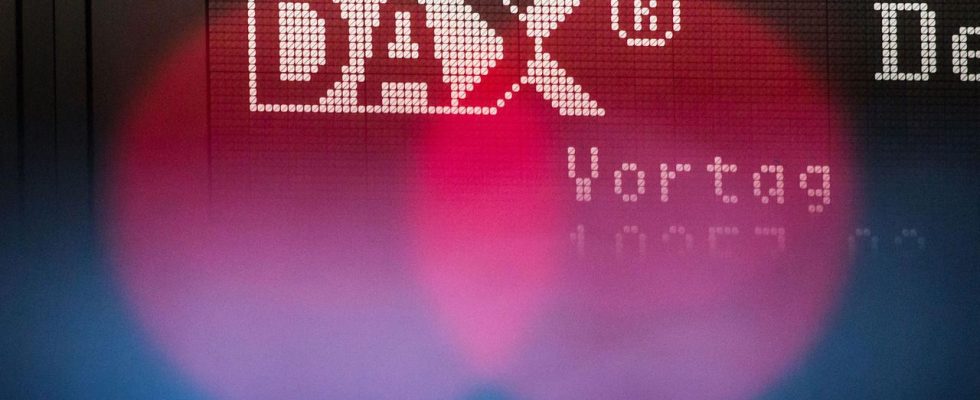market report
The interest rate uncertainty keeps the stock markets in suspense. The price losses on the German stock market should go into the next round at the end of the week – where can the DAX find support now?
At the end of the week, the DAX is likely to add one more to its previous price losses. Negative indications from the overseas exchanges and the ongoing uncertainty about the further interest rate prospects in the USA are weighing on the markets. The broker IG appraises the leading German index at the hour 0.4 percent lower at 15,621 points. The German stock exchange barometer had already fallen below the central support at 15,700 points yesterday. The DAX closed 0.7 percent lower at 15,677 points.
With that, the Bears have won the tug of war at the 15,700 point mark for now. “Should the DAX fall below the support at 15,700 points for a long time, a further drop in price to 15,400 points would be expected,” ING chart technology expert Christian Zoller had already warned yesterday.
At 15,456 points, the July low is the next important catchment area – but a slide below it should be avoided as far as possible. “If you slide below this level, the current sideways phase will turn into a top formation,” emphasizes HSBC expert Jörg Scherer.
Negative guidelines for DAX trading come from Wall Street. There, the uncertainty about the future monetary policy of the US Federal Reserve had made investors nervous. The Dow Jones index of standard values reduced its gains from the start of trading and closed 0.8 percent lower at 34,474 points. The tech-heavy Nasdaq fell 1.2 percent to 13,316 points. The broad S&P 500 lost 0.8 percent to 4,370 points.
Most policymakers continued to prioritize fighting inflation, according to transcripts of the Fed’s July interest rate meeting, released after Europe closed on Wednesday. This had fueled speculation about possible further interest rate hikes or at least persistently high interest rates in the USA.
Meanwhile, Asian bourses are struggling to rebalance after a week of worries over the ailing Chinese economy and a possible rise in US interest rates. The Japanese Nikkei index is 0.6 percent lower shortly before the close in Tokyo. The Shanghai stock exchange is currently down 0.2 percent.
Yesterday, China Evergrande, one of China’s largest real estate developers, filed for bankruptcy protection with a US bankruptcy court – this had increased fears of a worsening crisis in the Chinese construction sector. The company, which was indebted to the equivalent of 300 billion euros – no other real estate company in the world has accumulated more debt – got into trouble after the real estate bubble burst.
After the recent losses against the dollar, the European common currency stabilized below the $1.09 mark at the end of the week. The euro is currently trading at $1.0882, an increase of 0.1 percent.
Gold prices remain below the $1900 mark. Currently, 1892 dollars are paid for a troy ounce of gold. The rising dollar, as well as US interest rate speculation, are weighing on the precious metal, which itself does not yield any interest.
At the end of the week on the German stock market, the focus is on the Suse share. A good two years after the Linux specialist went public, the Swedish financial investor EQT wants to take the software company off the stock exchange again. In the evening, EQT announced a takeover bid to the remaining shareholders for 16 euros per share, with which the Nuremberg company is valued at 2.72 billion euros.
Applied Materials exceeded market expectations with its forecast for the fourth quarter. The chip supplier assumes sales of 6.51 billion dollars (plus or minus 400 million dollars) and referred to billions of dollars in subsidies from the governments in the USA, Europe and Japan for the construction of chip factories.
A US parliamentary committee accuses Credit Suisse of failing to conduct an internal investigation into historical accounts allegedly linked to the Nazis. The Swiss money house did not check all available documents, according to an independent report published by the US Senate Budget Committee. Only just under 1,000 of 65,000 data records would have been available electronically.

